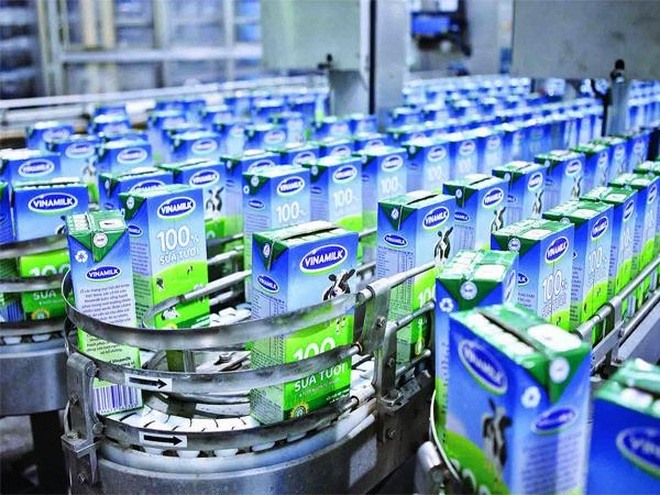 Economy
Economy

Việt Nam has 718 State-owned enterprises, most of them big or medium-sized and in 19 key sectors, that help the Government manage the economy.
 |
| SCIC is set to divest the Government’s stakes in 10 large enterprises like Vinamilk, Sabeco and Habeco. - Photo dantri.com.vn |
HCM CITY – Việt Nam has 718 State-owned enterprises (SOEs), most of them big or medium-sized and in 19 key sectors, that help the Government manage the economy.
This information was released at the “State Capital Withdrawal and Stock Market Registration” workshop held in HCM City this week by the Steering Committee for Business Renovation and Development.
According to the committee, in 2011-15 the country equitised, merged or closed down 591 SOEs, accounting for 96 per cent of the target.
In October alone 48 enterprises and three service businesses were equitised, taking the total number over the years to 4,500, which includes an economic group, 47 corporations and many large companies.
“Equitisation and withdrawal of State capital is a consistent Party and Government policy, an important mission to restructure SOEs and one of three key elements in restructuring the economy,” Nguyễn Trọng Dũng, deputy head of the steering committee, said.
“The equitisation has provided many quality products to the stock market and contributed to the capital market development and increased transparency and supervision in business.”
So far 411 equitised SOEs have listed on the stock market and 207 others are transacted as unlisted public companies on the UPCoM bourse.
According to a 2015 Ministry of Finance report on 350 SOEs after equitisation, their pre-tax profits increased by 49 per cent from the year before, tax payments by 27 per cent, charter capital by 72 per cent, turnover by 29 per cent and workers’ incomes by 33 per cent.
Target of 190 SOEs
Dũng revealed that out of the 718 SOEs, by 2020 the Government would fully retain only 190 in the 12 vital sectors of electricity transmission, cartography related to national security and military, railway infrastructure, air traffic services, post, irrigation management, lending for socio-economic development, banking safety, and lottery.
It would speed up equitisation but retain at least 65 per cent of companies in airlines services, large-scale mining and banking excluding insurance, securities, finance and fund management, he said.
In all other fields, the Government would hold only 50-65 per cent, he added.
In 2011-15 the Ministry of Finance had planned to pull out VNĐ26 trillion ($1.17 billion) from non-core businesses, but managed only 42 per cent of it. It hopes to get the rest by 2020.
According to the country’s sovereign fund, the State Capital Investment Corp (SCIC), as of September this year it had sold 100 per cent of 830 State enterprises and a part of 98 others, realising VNĐ14.675 trillion.
“Carefully researching to fix the price, choosing the most suitable time to sell, building and retaining a network of investors were factors that helped SCIC succeed,” the fund’s deputy general director, Nguyễn Hồng Hiển, said.
He said the SCIC is set to divest the Government’s stakes in 10 large enterprises like Vinamilk, Sabeco and Habeco.
It would sell 9 per cent of Vinamilk in November, he added. – VNS




